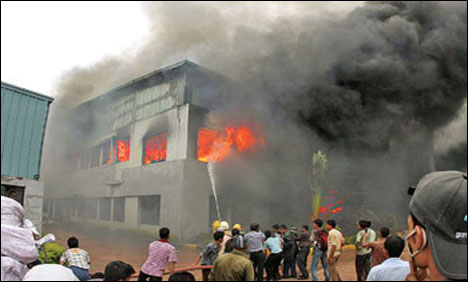In a blog article I posted back on May 1, I rehashed John Oliver’s tirade on apparel industry supply chain practices. In a segment of his satirical HBO news commentary show “Last Week Tonight” that aired in May, he made a scathing indictment of the supply chain practices of the likes of H&M, Walmart, Nike, and the Gap. He essentially accused these brands of being negligent, or at best claiming to be clueless, about the exploitive and unsafe working conditions in places like India’s garment factories. I just came across a very interesting alternative view on this topic in a brief article in the July/August edition of Yale Alumni Magazine entitled “Sweatshops Opening the Door to Change” (Carole Bass, Yale College ’83; Yale Law ’97).
The article interviews Mushfiq Mobarak, an economist at the Yale School of Management, who argues that the explosive growth of India’s garment industry benefits girls and young women, who hold most of the sector’s 4 million jobs. The availability of factory jobs, he claims, is a significant reason why girls are staying in school longer and delaying marriage and childbirth.
At the same time, fatal factory fires and building collapse have killed over 1,000 workers in recent years, prompting calls for boycotts until conditions improve. Mobarak and Rachel Heath (Yale PND) postulate in a piece they co-authored for the Journal of Development Economics that boycotts are the wrong answer because factories have created the first job opportunities for Bangladeshi women. By comparing pre- and post-factory data in villages close to new factories and in more remote towns, the economists estimated the influence of the new jobs on choices about marriage and age at the birth of their first child.
Older girls might leave school to work in a factory. But, because employees who are literate and numerate draw higher paychecks, younger girls are staying in school longer, they found. “For the first time, it becomes worthwhile to invest in girls’ education,” Mubarak says.
Are the authors making a case for sweatshops, Bass asks? “It’s a case against the knee-jerk reaction that we need to stop importing from Bangladesh,” Mubarak responds. “The right policy response is not to ban imports, but to invest in factory safety.”
Indeed, according to the most recent Resilinc EventWatch™ Annual Report, factory fire was the number one cause of supply disruption events worldwide in 2014. An investment in corporate social responsibility programs and the monitoring of sub-tier factory safety and working conditions may be one of the best ways to manage both hidden supply disruption and continuity risk, as well brand risk. The first step in this approach is investing in supply chain event monitoring and supply chain visibility tools.
{{cta(‘ea62e25a-938b-40b5-b389-c7791c66c394’)}}





